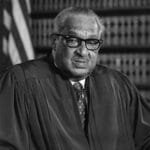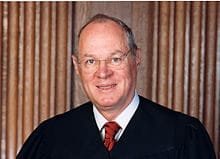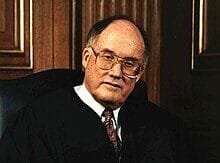
Antonin Scalia, born on March 11, 1936, in Trenton, New Jersey, was an influential Associate Justice of the U.S. Supreme Court from 1986 until his death in 2016. Scalia was known for his originalist and textualist judicial philosophy, which had a profound impact on American legal thought. Here is a comprehensive summary of his life and career:
Early Life and Education:
- Family Background: Scalia was the only child of Eugene Scalia, an Italian immigrant who became a professor of Romance languages, and Catherine Scalia, a teacher. His father’s love for language significantly influenced Scalia’s later focus on the textual meaning of legal documents.
- Education: Scalia attended Xavier High School in New York City, then went on to Georgetown University, receiving his A.B. in 1957. He then attended Harvard Law School, where he was an editor of the Harvard Law Review, graduating magna cum laude in 1960.
Legal Career:
- Early Career: After law school, Scalia clerked for Judge E. Barrett Prettyman of the U.S. Court of Appeals for the D.C. Circuit and for Justice William J. Brennan Jr. of the U.S. Supreme Court. He then entered private practice and later worked in the Nixon and Ford administrations, including as Assistant Attorney General for the Office of Legal Counsel.
- Academic Career: Scalia taught law at the University of Virginia School of Law, the University of Chicago Law School, and Stanford Law School, gaining a reputation as a brilliant legal scholar with a conservative bent.
Judicial Service:
- U.S. Court of Appeals: In 1982, President Ronald Reagan appointed Scalia to the U.S. Court of Appeals for the District of Columbia Circuit, where he served until his elevation to the Supreme Court.
- Supreme Court Appointment: Scalia was nominated by Reagan to the Supreme Court on June 24, 1986, following the retirement of Chief Justice Warren Burger. He was confirmed by the Senate with a vote of 98–0, reflecting his high regard in legal circles.
Supreme Court Tenure:
- Judicial Philosophy:
- Originalism: Scalia was the Court’s most outspoken proponent of originalism, the view that the Constitution should be interpreted based on the original understanding at the time it was adopted.
- Textualism: He argued that laws should be interpreted according to their text, not through legislative history or intent, which he viewed as unreliable or subject to manipulation.
- Notable Opinions and Cases:
- District of Columbia v. Heller (2008) – Scalia authored the majority opinion affirming an individual right to bear arms under the Second Amendment.
- Morrison v. Olson (1988) – He dissented, questioning the constitutionality of the independent counsel statute, arguing it violated separation of powers.
- R.A.V. v. St. Paul (1992) – He wrote for the majority, striking down a hate speech ordinance as a violation of the First Amendment.
- Maryland v. King (2013) – He supported the collection of DNA from arrestees, aligning with his interpretation of the Fourth Amendment.
- Concurrences and Dissents: Scalia’s dissents were particularly noted for their vigor, wit, and often scathing criticism of the majority’s reasoning, especially in cases involving statutory interpretation or when the Court, in his view, strayed from constitutional text.
Cultural Impact and Later Years:
- Public Figure: Scalia was a public intellectual, often engaging with the public through speeches, debates, and writings. He was known for his colorful personality, sharp humor, and love for opera.
- Legal Writings: Beyond the Court, Scalia wrote several influential books and articles, like “A Matter of Interpretation,” where he expounded on his judicial philosophy.
- Health and Death: Scalia was known to remain in robust health until his sudden death at a resort in Texas on February 13, 2016, at the age of 79. His death led to a significant political battle over his replacement, marking one of the most contentious Supreme Court nomination processes in recent U.S. history.
Legacy:
- Influence on Legal Thought: Scalia’s insistence on textualism and originalism reshaped discussions on how the Constitution should be interpreted, influencing both conservative and liberal jurists.
- Judicial Activism Debate: While often accused by critics of being an activist judge, Scalia saw himself as the opposite, arguing that sticking to the text and original understanding was the least activist approach.
- Mentorship and Influence: He was a mentor to many conservative legal scholars and jurists, leaving behind a cadre of judges and lawyers who follow or adapt his judicial philosophies.
- Polarizing Figure: Scalia’s views made him a polarizing figure, celebrated by conservatives but often criticized by liberals for what they saw as a rigid adherence to originalist principles that didn’t evolve with societal changes.
Antonin Scalia’s legacy is one of intellectual rigor, a commitment to a particular vision of constitutional and statutory interpretation, and a profound impact on the jurisprudence and the direction of the American legal system. His opinions continue to be cited and debated long after his service on the Court, underscoring his enduring influence on American law.







